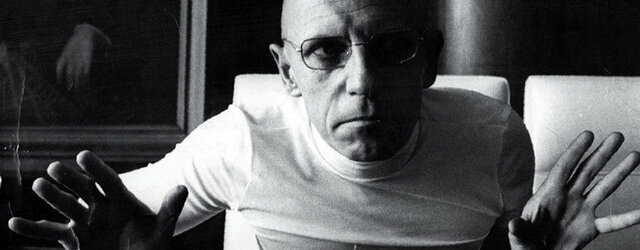
Categories
- Art (356)
- Other (3,632)
- Philosophy (2,814)
- Psychology (4,018)
- Society (1,010)
Recent Questions
- Why did everyone start to hate the Russians if the U.S. did the same thing in Afghanistan, Iraq?
- What needs to be corrected in the management of Russia first?
- Why did Blaise Pascal become a religious man at the end of his life?
- How do I know if a guy likes you?
- When they say "one generation", how many do they mean?
The very phrase “this is a recent invention – is relatively recent, as can be seen from the phrase that reflects the “technizing” view of knowledge (and related conceptual constructions like “knowledge production”, etc.), although earlier than the widespread use of Foucault's work – since it does not necessarily imply the logic of “epistemological breaks”, etc., which in turn is much earlier. However, Foucault himself referred to Nietzsche in the most radical of his theses-the historicity not of knowledge, but of truth itself.
With regard to the “historicity of knowledge”, the adoption of this thesis is one of the basic and the earliest in the formation of historicism – as the last, adding in the last decades of the XVIII – the first decades of the nineteenth century pushed just show them the gap in understanding “eras” by detecting simultaneously “(- full-)portability” from the language of one era into another language, i.e. For example, medieval ideas about power cannot be translated into familiar concepts, but must be described in their own language (hence the concept of “anachronism”, which is becoming one of the key concepts for historical knowledge). The task of the historian is no longer thought of as “translation” (let me remind you that before this time the practice of “rewriting” history was widespread – presenting it in a new language, a new style, without what we now call “scientific novelty”, etc.) – but in interpretation.
(I allow myself to focus on history in my answer, since it is historical research that either serves as a model for other humanities, or takes the experience of other disciplines and then replicates it and extends it to other humanities fields)
The most famous examples of this kind are the “School of the Annals”, especially the” first” and “third” generations – but even in the “second” there are enough examples of this kind (for example, Mandru, a student of Fevre, raises the question of the history of “smells” in the plane of changing experience of their perception) or “The Process of Civilization” by Norbert Elias. Returning to the original point, it should be noted that the very logic of “historicism”, which is closely connected with the formation of conservatism as a political ideology, presupposes from the beginning of the XIX century a “break”, “invention” of a new one, that is, a new one. history is the breaks and connections themselves (the latter become a problem only in the light of the former, since it becomes necessary to explain the continuity, the preservation of one-with the disappearance of the other, “preservation” ceases to be “self-evident”) – and if the logic of liberalism and, partly, radicalism (in the latter case, it is more complicated: one can recall the well – known expression about the proximity of the extreme-right and the extreme-left) referred to the “natural”, In the case of a non-historical approach, an appeal to the “normal order of things”, universal laws of sociality, conservative intellectual trends referred to the historicity of any existing society and institution (“universal laws act concretely” and thus criticism based on universal criteria is rejected already at the level that the problem may lie not in the correctness of the criterion, but in the truth of its application).
Over the past decades, and Foucault's recollection is far from accidental – the problem of historicity/establishment has been radically expanded, as it covers both the explanatory constructions themselves and the methods of their production – which is associated with a double reaction to Foucault's work by historians. After the initial approval, it is replaced by a very skeptical attitude – as the fundamental difference in questions became clear. Initially, Foucault was received favorably, largely due to a lack of understanding of his work – as another work (“History of Madness…”) on the usual topic, about the variability of concepts and images, while the historicization of truth takes the question from the level of changing the mental tools with which we work with reality to the level where “reality” itself turns out to be, if you will, an “invention”, and such speaking remains opaque to itself, and “invention” is now what makes (the meaning is given through oppositions).